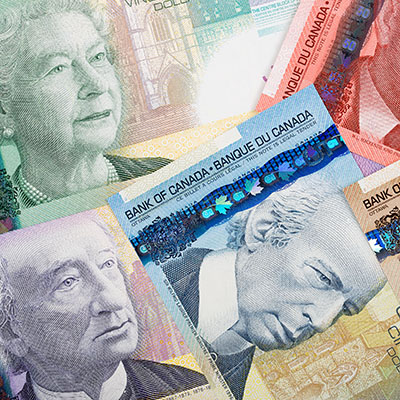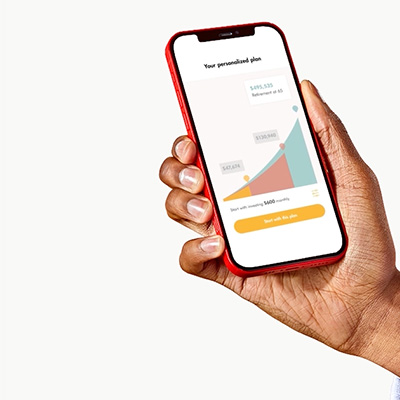How to avoid getting scammed when selling or buying online
Always conduct the exchange in person
As a general rule, try to set up a local meetup, knowing you’re dealing with a real person. If you are concerned about your safety, ask to meet at a local police station as many of them have a monitored exchange zone. You could also ask to meet in a public place, such as a coffee shop.
Avoid late-night gatherings or areas that might leave you vulnerable, such as B. Parking spaces. As a seller, you might not get the best deal if you’re dealing with someone local – as opposed to someone who’s willing to pay more to have it shipped to them – but at least you know you’re going to one sell real person.

Good credit is important to your financial health, and Borrowell can help change that for the better. Sign up with Borrowell to get your credit score and credit report for free!
Register
Money makes the world go round
Cash deals are always the best as you will receive the money physically. However, if the amount is large, you can ask the buyer/seller to take you to a bank to collect the bank draft. This way you ensure that the funds you receive are legitimate.
If you’re being asked to transfer cash through a money exchange service, money order, or wire transfer (e.g. Western Union), it’s likely a scam. Don’t even think about accepting a check. Interac e-transfers can be fine, but be aware that if you’re sending someone money for faulty goods – or goods you don’t receive at all, you probably won’t be able to reverse the transaction Cancel transfer before it is deposited. Otherwise, you could contact your bank to explain the situation and see if they can open an investigation and potentially get your money back. However, this can take weeks and there is no guarantee that your bank will open an investigation.
ask lots of questions
When you buy something online, you should ask additional questions. You must look for additional information to verify that the seller is legitimate. For example, you could ask for more pictures or ask how the item was used. You might even ask them where the item was originally purchased. Essentially, you’re looking for holes in her story. If something sounds wrong, it’s probably not a transaction worth making.

Get a $25 bonus when you open and fund your first Wealthsimple Investment account* (minimum $500 first deposit). Trading and cash accounts are not eligible. Sign up now to take advantage of this special offer.
Getting started
See if you can verify their identity
If you are dealing with a buyer or seller whom you cannot meet in person, you should try to verify their identity. Ask them to send a photo of them with their ID (with personal information hidden). You can also ask them to provide links to their social media accounts. You want to know you’re talking to someone who’s legitimate. Scammers will be reluctant to disclose information. However, everyone should be suspicious when someone asks for personal information. Make it clear that you are only trying to verify their identity and are not looking for sensitive information.
Note prices
When shopping online, if an offer sounds too good to be true, be very careful. If you’re looking for a Playstation 5 – which usually sells out a few days after restocking – but an online seller is offering it for just $50 over retail, you’re probably dealing with a scam. Alternatively, if there is an item you are interested in that appears to be listed well below its value, you should question its legitimacy.
Don’t accept excuses
If you come across a buyer or seller who seems to have excuses, it’s probably not worth your effort. Let’s say you buy electronics. There is no reason why you cannot inspect the item before completing the transaction. If they apologize for forgetting to charge it, ask for it to be plugged in at a coffee shop so you can check. If someone says they need the items shipped to them because they’re in a different country, but they’re willing to pay you extra for your trouble, alarm bells should be ringing in your head.
Only buy from reputable sites
It’s not just used marketplaces that you need to know about. When shopping online, you should only buy from reputable sites like Amazon. Even then, you should make sure you are on the right website as scammers may create a fake website similar to the real one. Tech-savvy scammers can create websites that copy logos from legitimate websites. Watch out for spelling mistakes or even a URL that doesn’t appear right.
Be sure to read the vendor reviews. If there isn’t, be suspicious. When checking out, make sure you were not redirected to a third-party website. Also, make sure the website doesn’t ask for payment using a method like bank transfer or gift card. If a price seems too good to be true, it’s probably a scam.
Always use tracking when selling
A common scam is buyers claiming that the goods were never delivered. They then try to get their money back through the marketplace, which can quickly side with the buyers. If you are a seller, choose a shipping method that has a tracking number and requires a signature upon delivery. Providing this service also protects the buyer in case the item is lost or not delivered.
Listen to your gut
Even when you do your due diligence and try to protect yourself as best you can, sometimes a deal just doesn’t feel right. It might be best to trust your gut and just walk away from the transaction.
You are 5 minutes from the best mortgage
Finding your perfect mortgage shouldn’t be difficult.
Homewise is an online broker that negotiates on your behalf with more than 30 major banks and other lenders, completely free of charge and takes only five minutes to apply.
If you’re in the market for a new mortgage or want to refinance before interest rates rise again, head over to Homewise now and answer a few simple questions to get started.